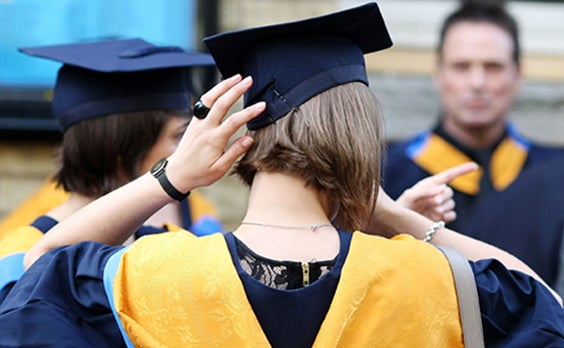London university stops making unconditional offers in bid to ‘maintain standards’
'Unconditional offers have made a mockery of exams and led to inflated grade predictions'

Your support helps us to tell the story
From reproductive rights to climate change to Big Tech, The Independent is on the ground when the story is developing. Whether it's investigating the financials of Elon Musk's pro-Trump PAC or producing our latest documentary, 'The A Word', which shines a light on the American women fighting for reproductive rights, we know how important it is to parse out the facts from the messaging.
At such a critical moment in US history, we need reporters on the ground. Your donation allows us to keep sending journalists to speak to both sides of the story.
The Independent is trusted by Americans across the entire political spectrum. And unlike many other quality news outlets, we choose not to lock Americans out of our reporting and analysis with paywalls. We believe quality journalism should be available to everyone, paid for by those who can afford it.
Your support makes all the difference.A university in London will no longer make unconditional offers to school-leavers in a bid to "maintain standards".
St Mary's University in Twickenham made the move after it found that a number of students who had been given a guaranteed place on a degree course did not achieve their expected A-level grades.
It comes after recent figures showed that the number of unconditional offers made to prospective students has soared, prompting fears that universities are sacrificing standards.
The rise has prompted calls for the admissions system to be overhauled, as critics say they risk distracting students during their final year at school.
Sam Gyimah, universities minister, previously called the rise “irresponsible” and warned that handing them out to just put “bums on seats” undermined the credibility of the higher education system.
John Brewer, pro vice-chancellor for St Mary's University, said the institution was “determined to maintain standards of entry” and had decided to withdraw unconditional offers for 2018/19.
He said: “It was clear to us that a number of students who enrolled with us after an unconditional offer was made didn't meet the grades they expected and this didn't merit the investment we made into that particular part of our recruitment programme.
“By listening to the views of schools, teachers, our own staff and students, we believe that with the evidence that has been available to us that we've made the right decision.”
An unconditional offer means a student has a place on a degree course secured, regardless of the grades they achieve in their A-levels or other qualifications.
More than a quarter (23 per cent) of 18-year-old university applicants from England, Wales and Northern Ireland received at least one unconditional offer in 2018, recent Ucas figures show.
The data also reveals that 67,915 unconditional offers have been made to 18-year-olds in England, Wales and Northern Ireland this year - up from less than 3,000 just five years ago.
Headteachers have urged universities to stop the practice, arguing that such offers can lead to students making less effort in their A-levels. And there have been reports that some students stopped going to school once they secured a guaranteed place.
In an interview with The Independent earlier this year, Clare Marchant, head of the universities and colleges admissions service (Ucas), called for an urgent rethink of the practise.
Matt Waddup, head of policy and campaigns at the University and College Union (UCU), said: "The decision by St Mary’s demonstrates the desperate need to overhaul our failing admissions system.
"We are alone in the world in persisting with a system where students are offered university places based on highly inaccurate predicted grades."
He added: ‘Unconditional offers have made a mockery of exams and led to inflated grade predictions, while putting students under enormous pressure to make a snap decision about their future.
"The simplest and fairest way to deal with these problems is for us to adopt a system of post-qualification admissions, where offers are based on actual achievement rather than estimated potential."
Join our commenting forum
Join thought-provoking conversations, follow other Independent readers and see their replies
Comments